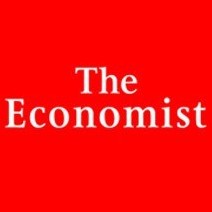认知科学
你知道抽水马桶是如何工作的吗?自行车呢?拉链呢?大部分人顶多算是一知半解。他们难以解释最基本的发明,更不用说那些更复杂和抽象的事物。然而,尽管人们如此无知,他们仍设法创造出了现代世界并遨游其中。新书《知识幻觉》(The
Knowledge Illusion)试图解释一个显而易见的矛盾:人类思维何以如此强大却又如此肤浅?
DO YOU know how a toilet works? What about a bicycle, or a zipper? Most people can provide half answers at best. They struggle to explain basic inventions, let alone more complex and abstract ones. Yet somehow, in spite of people’s ignorance, they created and navigate the modern world. A new book, “The Knowledge Illusion” sets out to tackle this apparent paradox: how can human thinking be so powerful, yet so shallow?
史蒂文·斯洛曼(Steven
Sloman) 和菲利普·费恩巴赫(Philip
Fernbach)这两位认知学家从进化论和心理学入手。他们认为,人脑已经进化成只会费最少的力去改善主人的健康。人是一种群居物种,他们在一种协作的环境里进化;只要有可能,人类总是将技能外包给他人。结果,人类个体的思维能力都非常有限,在自己的头脑里存储的信息也很少。大量知识通过群体传播,而群体成员通常并未意识到这一点。
Steven Sloman and Philip Fernbach, two cognitive scientists, draw on evolutionary theory and psychology. They argue that the mind has evolved to do the bare minimum that improves the fitness of its host. Because humans are a social species and evolved in the context of collaboration, wherever possible, abilities have been outsourced. As a result, people are individually rather limited thinkers and store little information in their own heads. Much knowledge is instead spread through the community—whose members do not often realise that this is the case.
作者将其称为“理解的幻觉”(illusion
of
understanding),他们用一个简单的实验来证明这一点:请实验对象就自己对某个事物的了解程度评分,然后写下对该事物的详细介绍,最后重新打分。几乎无一例外,实验对象的第二次自我评估的得分都下降了。作者认为这种效应无处不在,从马桶到自行车,再到复杂的政策议题。他们指出,这种幻觉之所以存在,是因为人类的进化符合蜂巢思维——出于直觉,他们非常擅长合作,因而令头脑和头脑之间的界限变得模糊。经济学家和心理学家谈论“知识的诅咒”:懂得某个事物的人难以想象另一个人居然不懂。而知识的幻觉则是相反的情况:人们因为别人了解什么就以为自己也了解。
The authors call this the illusion of
understanding, and they demonstrate it with a simple experiment.
Subjects are asked to rate their understanding of something, then to
write a detailed account of it, and finally to rate their understanding
again. The self-assessments almost invariably drop. The authors see this
effect everywhere, from toilets and bicycles to complex policy issues.
The illusion exists, they argue, because humans evolved as part of a
hive mind, and are so intuitively adept at co-operation that the lines
between minds become blurred. Economists and psychologists talk about
the “curse of knowledge”: people who know something have a hard time
imagining someone else who does not. The illusion of knowledge works the
other way round: people think they know something because others know
it.

















